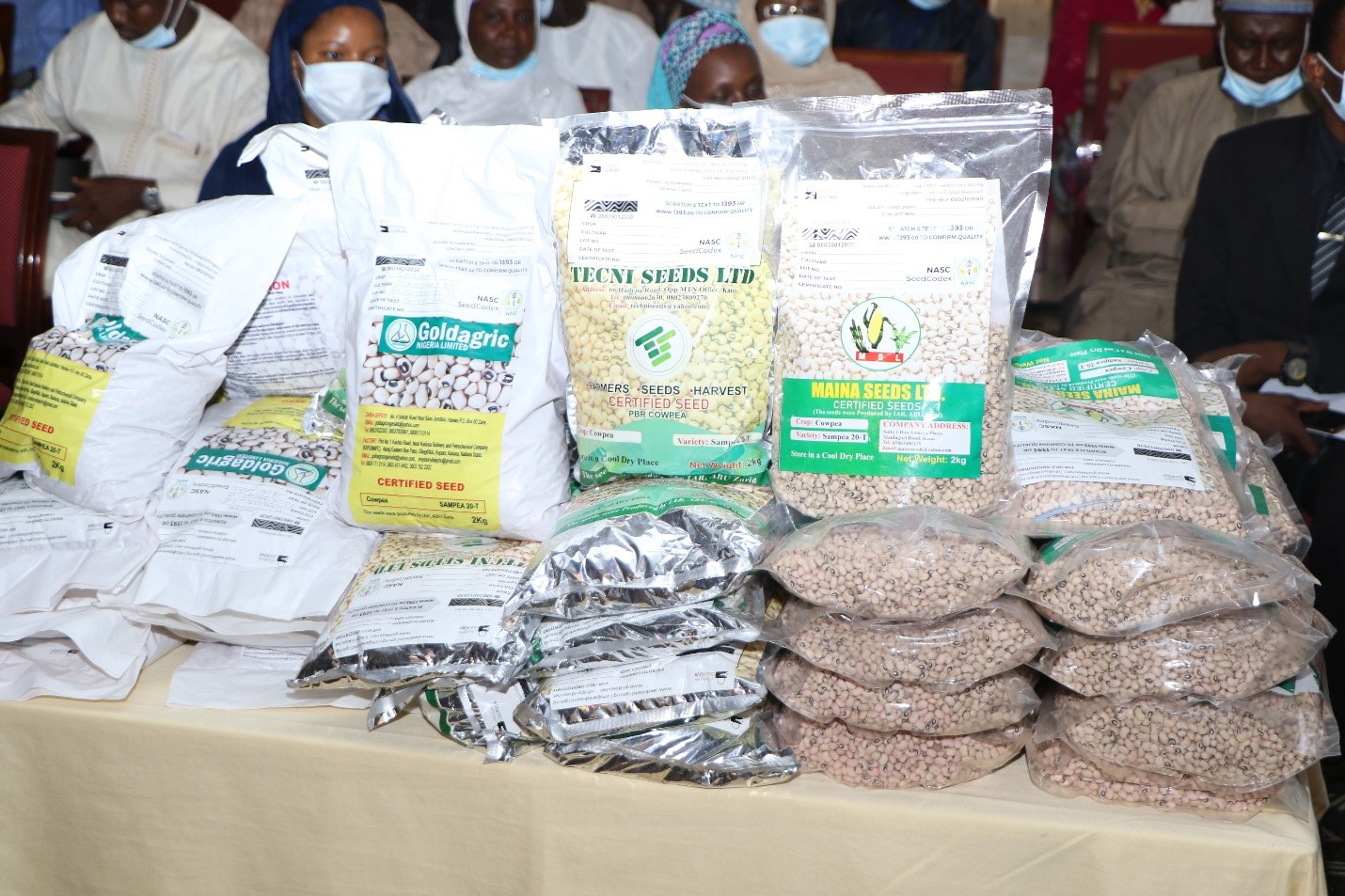Nigeria’s quest to increase beans production to meet national demand received a major boost last year with the introduction of Pod Borer Resistant (PBR) cowpea variety by scientists at the Institute of Agricultural Research (IAR), Zaria, in collaboration with the African Agriculture Technology Foundation (AATF).
Previously, beans farmers in the country experienced low yield following the devastating attack of Pod Borer Insect called Maruca Vitrata which can destroy about 80 per cent of beans on the field, their attempt to keep the insect pest away took a great toll on their finances as they had to buy chemicals to spray their field fortnightly.
A trip to Sokoto State where farmers had planted this beans variety in the last planting season shed more insight of how PBR cowpea variety farming is gradually becoming a gold mine for farmers.
The farmers said they almost quit beans farming due to frustrations of having their beans destroyed on the field after more than 90 days of investment that will become a waste following insect attacks.
In Shagari Local Government, Idris Saminu, 47, who said he has been into beans farming for about 17 years, noted that he has not experienced good yield until he planted the PBR beans variety. Saminu, a father of 4 said he had since enrolled his children in a public schools within their local government from parts of the proceeds after selling the beans he harvested.
The farmer hinted that he would increase his farm size from the current 5 hectares to about 10 hectares so that he can make money to commence house construction.
“This new beans variety helped me very well. I have 5 hectares; I want to increase it to 10 hectares by next year. If you look you will see that I have already started building my house gradually, I want to build a house where my family will live comfortably.
“My children are now going to school because I have started making money from beans farming unlike before where I will plant, insect will destroy them on the farm. I was frustrated, I left the farm and ventured into selling of firewood to feed my family.
In the same local government, about five kilometres away from Saminu’s farm, Alhaji Gambo Musa owns a 4 hectare beans farm where he said planting PBR Cowpea variety offered him a new lease of life to carter for his 2 wives and 8 children.
Alhaji Musa who is 64 years old said he has a large family, hence there is need to feed them and see them through their academics. He said his last harvest was massive, he decided to host a small party with his friends and family where he killed a ram and two goats for the celebration.
Musa said after expanding his farm to about 8 hectares, he would sponsor one of his wives to Hajj next year from the proceeds.
He further stated that he must ensure that all his children attend the higher institution, then those who couldn’t will assist him in the farm to produce more beans.
“I love beans farming; I have been in this business for about 30 years. Since those years, most of my production is for house consumption, because the yield is very small. I started selling beans since I started planting this new beans variety.
“My family is big, I need to feed them, my two wives have relatives who come to visit sometimes, I need to also feed them. The money I make from selling this beans is helping me very well.
“By next planting season, I will increase my farm because my children must attend the higher institution, i will make sure I train them up to that level. The ones that cannot go to school will assist me on the farm”, Alhaji Musa said.
In Sokoto North Local Government, Aminu Dogo has 4 hectares of beans farm which he said was inherited from his late father.
The 32-year-old beans farmer lost his father in 2017, he continued with the beans farming his father left behind as part of his inheritance. Dogo said low yield almost discouraged him from farming beans until his friend; Babangida introduced him to PBR beans. He said Babangida has about 6 hectares of beans in a nearby village, and he has been getting high yield since he started planting the beans. Dogo who has two children and a wife said with what he gets from his beans farm now, he had concluded plans to get a second wife before the middle of the year because he now has money to feed them. “I am the 14th child in my family. When my father died, I was given the 4 hectare beans farm. Initially I was discouraged because of the low yield from the farm. Just last year, my friend Babangida told me about this new beans variety. I planted, I was surprised that pests did not attack it. It was amazing that I harvested more than I used to harvest before. “Where I used to get about 4 bags of beans, I now get about 6 bags of beans. Before the middle of this year, I will marry another wife because I now have enough money to take care of myself and my family”, Dogo added.
In Wamako Local Government of Sokoto, Isa Mohammad owns a 12 hectare beans farm where he employed about 23 persons who work directly on the farm. Mohammad who is 45 years said he has long taken planting PBR beans as business venture he hopes to continue earning his living from. He said since he has reduced the chemical he spray on his farm to control pest, he decided to increase his farm from 5 hectares to 12 hectares, employed persons to work for him.
He said he hopes to buy a truck soon to assist in transporting the beans to markets and individuals who place orders. Mohammad further stated that he has two wives and 5 children, but he hopes to marry another wife this year and bear more children because he can carter for them. “My farm was 5 hectares when I started, but because of the high yield, I decided to increase it to 12, by next year, I will increase it to 18 or 20 hectares, then employ more hands to assist me on the farm. I pay each person N500 each day they spend on the farm. “I am having more patronage; I want to buy a truck that I can use to transport the beans to the market and homes of those who place order. “Due to the way the money is coming in, I have resolved to marry another wife to add to the two I have already, I can afford to feed all of them including my 5 children, and other relatives.
This article was written by Collins Nnabuife for The Tribune Online.






















































































